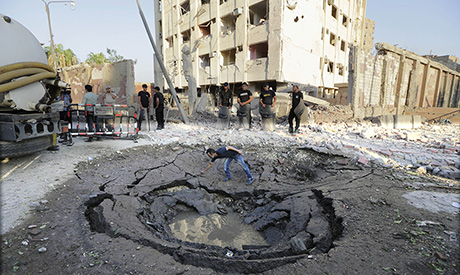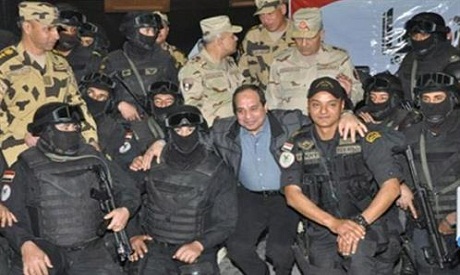 The Italian petroleum and gas gigant ENI has discovered gas reserves of up to 30 trillion cubic feet
in the Egyptian part of the Mediterranean, making it the biggest gas
discovery ever in the country, the Egyptian petroleum ministry said on
Sunday. The newly-discovered well 'Zohr' holds a potential 30 trillion cubic
feet of lean gas (5.5 billion barrels of oil equivalent ) covering an area of about 100 square kilometres, according to a
statement by ENI."Zohr is the largest gas discovery ever made in Egypt and in the
Mediterranean Sea and could become one of the world’s largest
natural-gas finds," ENI said in a statement.
The Italian petroleum and gas gigant ENI has discovered gas reserves of up to 30 trillion cubic feet
in the Egyptian part of the Mediterranean, making it the biggest gas
discovery ever in the country, the Egyptian petroleum ministry said on
Sunday. The newly-discovered well 'Zohr' holds a potential 30 trillion cubic
feet of lean gas (5.5 billion barrels of oil equivalent ) covering an area of about 100 square kilometres, according to a
statement by ENI."Zohr is the largest gas discovery ever made in Egypt and in the
Mediterranean Sea and could become one of the world’s largest
natural-gas finds," ENI said in a statement.The discovery was made in the Shorouk block that was awarded to ENI in January 2014 following an international bid, ENI said.
The well is located at a depth of 1,450 metres. Production of the new discovery should commence within 30-36 months, according to Abdel-Aziz. He added that the government expects to reach "self-sufficiency" within five years with the help of Eni's discovery, in addition to more expected findings.


.jpg)

















